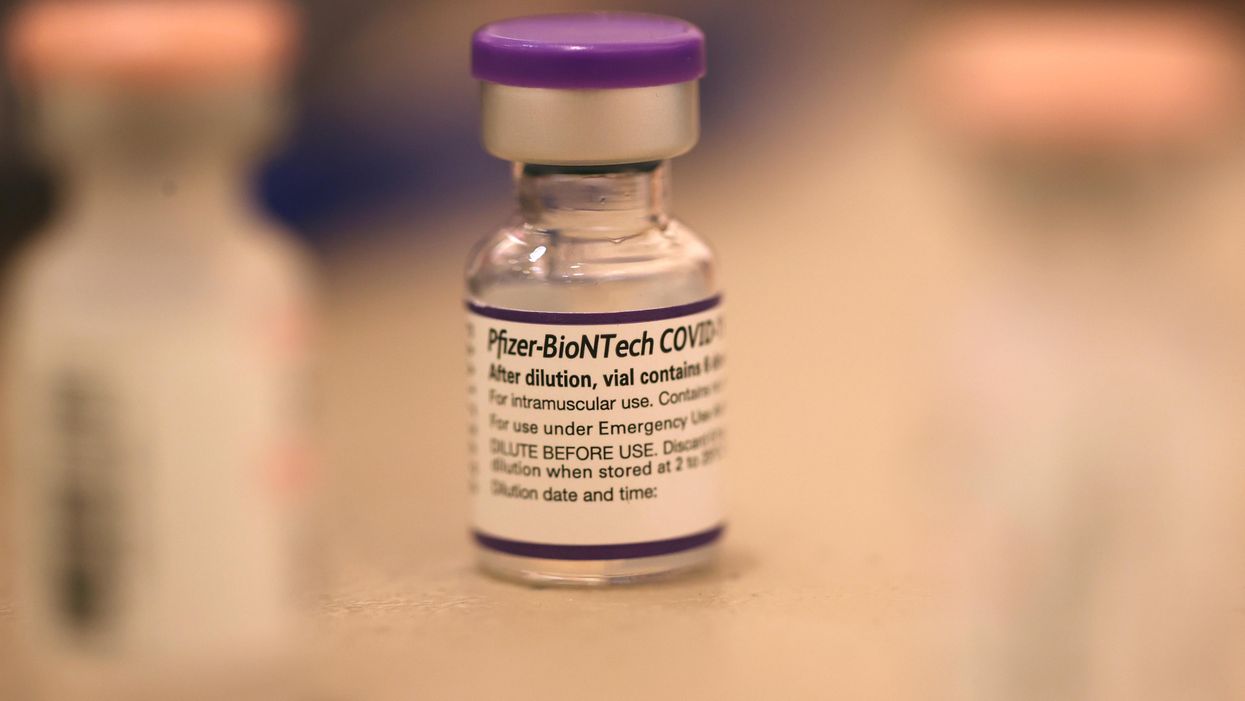
Photo by Justin Sullivan/Getty Images

Dr. Soumya Swaminathan — the World Health Organization's chief scientist — says that there is zero evidence to support the idea that otherwise healthy children and adolescents need a booster shot of a COVID-19 vaccine.
During a Tuesday media briefing, Swaminathan said that while she believes there is a certain degree that vaccine immunity wanes amid the Omicron spike, more research needs to be conducted around who actually needs booster shots, Reuters reported.
"There is no evidence right now that healthy children or healthy adolescents need boosters," Swaminathan said. "No evidence at all."
According to CNBC, Swaminathan said that the agency’s Strategic Advisory Group of Experts is set to meet later this week to address the research and consider how countries ought to handle booster shots.
“The aim is to protect the most vulnerable, to protect those at highest risk of severe disease and dying, those are our elderly population, immunocompromised with underlying conditions, and also health care workers,” Swaminathan said during the briefing.
Dr. Michael Ryan, executive director of the organization's health emergencies program, agreed and said that the agency has yet to determine how many doses people will need to be considered fully vaccinated — or vaccinated just enough.
“I think people do have a certain fear out there that this booster thing is going to be like every two or three months and everyone’s going to have to go and get a booster. And I don’t think we have the answer to that yet,” Ryan admitted.
Media briefing on #COVID19 with @DrTedroshttps://twitter.com/i/broadcasts/1YqJDqlopLVxV\u00a0\u2026— World Health Organization (WHO) (@World Health Organization (WHO)) 1642521618
The U.S. Food and Drug Administration in early January approved booster shots for teens 12 through 17 years — and currently encourages all children in that age group receive a booster dose five months after their primary series of shots.
CDC Director Dr. Rochelle Walensky at the time said, "It is critical that we protect our children and teens from COVID-19 infection and the complications of severe disease. ... We now recommend that all adolescents aged 12-17 years should receive a booster shot 5 months after their primary series. This booster dose will provide optimized protection against COVID-19 and the Omicron variant. I encourage all parents to keep their children up to date with CDC’s COVID-19 vaccine recommendations.”
In December, the WHO stated that additional doses of vaccines outside boosters "may be needed as part of an extended primary series for target populations where the immune response rate following the standard primary series is deemed insufficient."
"The objective of an additional dose in the primary series is to enhance the immune response to establish a sufficient level of effectiveness against disease," the guidance read at the time. "In particular, immunocompromised individuals often fail to mount a protective immune response after a standard primary series, but also older adults may respond poorly to a standard primary series with some vaccines."
The organization concluded:
Introducing booster doses should be firmly evidence-driven and targeted to the population groups at highest risk of serious disease and those necessary to protect the health system. To date, the evidence indicates a minimal to modest reduction of vaccine protection against severe disease over the 6 months after the primary series. Waning of effectiveness against all clinical disease and infection is more pronounced. Duration of protection against the Omicron variant may be altered and is under active investigation. Evidence on waning vaccine effectiveness, in particular a decline in protection against severe disease in high-risk populations, calls for the development of vaccination strategies optimized for prevention of severe disease, including the targeted use of booster vaccination.